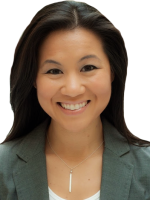As state officials prepare to take full control of the once federally funded Texas Women’s Health Program on Nov. 1, they’re running into a series of unexpected challenges, from controversy around proposed rule changes to questions about how to cover the 130,000 enrolled clients within the confines of a tight state budget.
The state has pledged to forgo $35 million in annual federal funding — a 9 to 1 match — in order to exclude Planned Parenthood clinics from the program, clinics that have used Women's Health Program dollars to provide contraception and cancer screenings, but not abortions. Two separate courts have blocked Texas from ejecting those clinics ahead of legal hearings scheduled for the fall.
Meanwhile, Gov. Rick Perry has directed the Health and Human Services Commission to find a way to fund the 6-year-old program exclusively with state dollars.
In a May letter to the governor's office and the Legislative Budget Board, outgoing HHSC Commissioner Tom Suehs offered a funding mechanism for the program that included implementing cost-saving measures throughout the agency, a hiring freeze and enhancing efforts to recover funds from Medicaid fraud.
But opponents of efforts to oust Planned Parenthood from the program say the state was banking on paying for much of it another way — with the federal health reform Republican state leaders so revile. They point to legal filings and fiscal notes state officials prepared in July indicating they could fold Women’s Health Program clients into Medicaid starting in 2014, the year the Affordable Care Act calls for a widespread expansion of the safety net health care program. The U.S. Supreme Court has ruled that the Medicaid expansion is optional, and Perry has vowed thatTexas will not do it.
In an email, HHSC spokeswoman Stephanie Goodman said that analysis was “developed before the Supreme Court decision." She said her agency will await direction from the Legislature before deciding how to proceed. Perry spokeswoman Lucy Nashed said the governor supports funding the Women's Health Program through the end of 2013, “and we will work with the Legislature during session to address funding ... moving forward."
Sen. Bob Deuell, R-Greenville, a family physician and strong proponent of blocking Planned Parenthood from the program, said that while he believes the state will be able to find the money somewhere, he is skeptical of Suehs' early ideas, in particular further targeting Medicaid fraud. "The good news is our revenue is up beyond expectations,” he said — but later warned, "Of course, there’s lots of places to put those dollars."
The funding question isn't the only thing nagging the embattled program. Earlier this month, the state’s largest physician groups entered the fray by voicing vehement opposition to a proposed rule that would prohibit Women’s Health Program providers from discussing abortion with their patients. The Texas Medical Association characterized the rule, which must be considered at a public hearing before it's approved, as a "gag order," and said it endangered physicians' relationships with their patients.
Following a letter from several medical groups to Perry and state budget writers, state Rep. Sarah Davis, R-Houston and a breast cancer survivor, joined the chorus. "I believe in the sacred nature of the doctor-patient relationship, so I cannot and will not sit back if I think there are rules that are going to jeopardize that relationship," she said on Wednesday.
The physician opposition comes at an inopportune time for the state, which is trying to recruit more doctors to the Women's Health Program to treat the estimated 47,000 clients that will have to be redirected from Planned Parenthood clinics.
But Deuell said there’s nothing unusual about such a rule in the realm of government-provided health care.
"The practical point," he added, "is if the physician and patient are in the room, who’s going to know?"
Planned Parenthood is awaiting an October hearing in district court over whether its clinics can stay in the Women’s Health Program. A separate case is moving through the U.S. Court of Appeals for the Fifth Circuit. In March, Republican Texas Attorney General Greg Abbott sued the U.S. Department of Health and Human Services for pulling back funding over Texas' decision to eject clinics affiliated with abortion providers from the program.
On Thursday, state Rep. Jessica Farrar, D-Houston, wrote a sharply worded letter to Abbott after learning his office had submitted a July 9 briefing to the appeals court that twice referenced the state's intent to move WHP clients into Medicaid after the expansion of the program takes effect in 2014. She pointed out that was the same day Perry notified federal authorities that Texas would not extend the program. Farrar requested that Abbott "correct or withdraw" those statements.
State Rep. John Zerwas, an anesthesiologist and Simonton Republican, said the state is caught in a difficult situation because Planned Parenthood is "a very cost-effective provider." However, he said lawmakers were willing to walk away from federal funds to make a bigger point: They are against abortion and any organization that may refer women for the procedure.
“We have to look at who’s elected to the Legislature and their philosophies and beliefs, and we have to be respectful of those,” he said.
But Rene Resendez, a 25-year-old graduate student and Women's Health Program client in Odessa, said her health care is at stake. She launched a petition on Tuesday to try to persuade lawmakers to hold a public hearing to keep her local Planned Parenthood clinic in the program.
“Women pay taxes. They should be able to go to their provider of choice,” she said. “Why shouldn’t they be able to choose just because they’re poor?”




